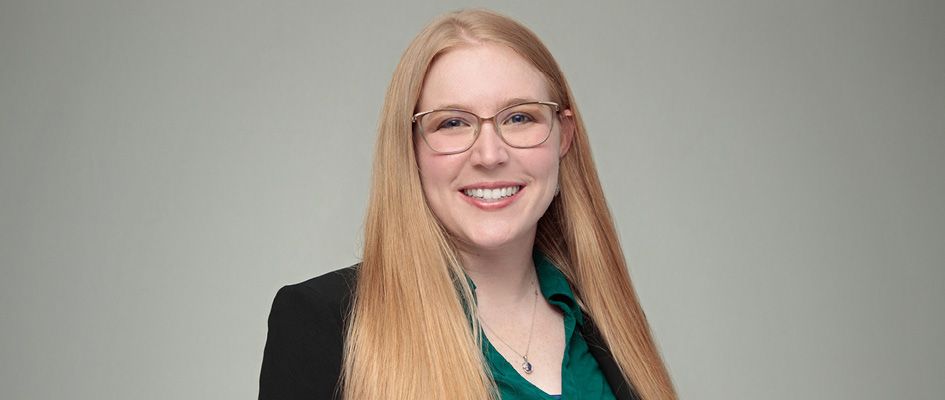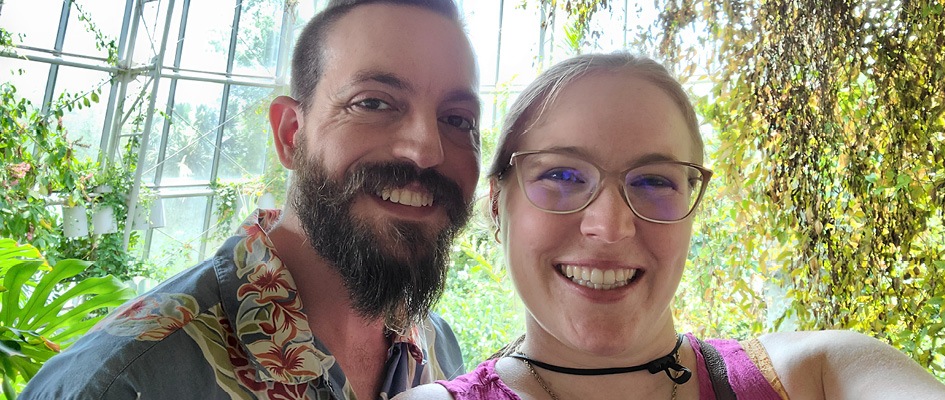Our Voices
Caroline Mahalitc: Confronting Privilege
This month, Caroline explores the concept of privilege and details how the Racial Equity BRG has influenced the way she shows up as an ally for underrepresented communities.

When she joined Moss Adams in November 2019, Caroline quickly joined the Racial Equity business resource group (BRG). While balancing her responsibilities as an assurance manager in Everett, Caroline also supports the Racial Equity BRG’s educational opportunities such as Courageous Conversations and Heritage Month newsletters. She’s inspired to continue learning about the issues facing historically excluded cultures and determined to leverage her privileges to be a better ally to underrepresented communities. Caroline talks about what she’s learned and how she believes allyship should show up in the workplace.
What do the words ‘privilege’ and ‘allyship’ mean to you?
A friend at the firm described privilege as being able to exist or do everyday things without fear, and I agree with that. I define privilege as attributes or characteristics you have that you didn’t control and that don’t contribute to increased struggles in your life, such as your race, sexual orientation, or upbringing.
As an ally, I’m aware of my privilege and I’m leveraging it to effect change and uplift others who don’t have the same privileges. My allyship includes spreading awareness, such as having conversations with relatives and friends who might not understand things the way I do. I believe empathy is the core of understanding and acceptance—sometimes we all need to take a step back, listen, and consider how we might feel if we were in someone else’s situation.
The hard part is always trying to make sure I don’t overstep or start speaking for other people. I use my resources and privileges to be heard, but I try not to speak on behalf of any community because it’s not my platform. It’s a fine line, and I’m sure I haven’t always gotten it right. I’m still learning and working through that.
Can you speak to a moment where you realized your privilege?
Back in college, I realized one of my privileges is that I’ve only had romantic relationships that were considered accepted because they were with men. I’ve never had fears about public displays of affection with a man because that’s what’s expected of me as a cisgender woman. As we neared the 2015 Supreme Court decision on same-sex marriage, I started to wonder what it would be like if I worried about violent reactions to my relationships, as those in the LGBTQ+ community did, and often still do.
Also, knowing my family’s roots is a privilege. I’ve got a Scottish and Irish family tree that goes way back into the 1700s. Growing up, my family went to Scottish festivals and highland game events to celebrate our heritage. I later learned more about Black culture after joining the Racial Equity BRG, and I realized we’ve got a huge population of people in this country who may not be able to know their roots to the degree of specificity that I do. The Black community had that history taken away from them. I’ve shared with my sister about what I’ve learned, because our cultural lineage was a huge part of our identity growing up.

You mentioned what you learned with the Racial Equity BRG. How else has the BRG influenced your allyship journey?
I’ve never worked for a company that makes space for inclusion and diversity conversations and takes a very proactive stance on it. I love it because I’ve had the opportunity to learn about the significance of these issues and how pervasive they are. The Racial Equity BRG has been a really good way for me to learn from other people’s experiences and walk the walk so I can make a real difference.
A lot of our focus has been awareness and education. I truly believe that knowledge is power. The newsletters and workshops we host create space for us to be comfortable exploring these issues. Sometimes, we’ll do prework like watching a documentary and then follow it up with a guided discussion about the topic. These issues are sensitive, and many of us may not be used to discussing them, but by creating these safe and dedicated spaces in small groups we can help people explore what they’ve learned and make concerted efforts to create change in our lives and at the firm.
Over time, I’ve come to really embrace that if I want a more equitable world, I need to be that change—the change in our personal relationships, our society, and our workplace.
What do you think people are missing when they don’t take time to understand privilege and allyship?
There’s this psychology concept, the Dunning-Kruger effect, that says people who know very little about something tend to think they know a lot about it. Yet the more someone knows about subject, the more they realize how much they don’t know about it.
For instance, understanding there are so many layers of sexual identity and attraction helps you understand it’s not a cut-and-dried issue. Learning about the true and dark US history, with a focus on understanding racial equity, shows you the impact of so many systemic issues, such as redlining.
When I was a kid, I used to tell my parents I wanted to know everything about everything. I grew up and realized I can’t possibly know everything, but there’s still so many eye-opening experiences to have that can only be learned by seeking truths and experiences of others, especially those unlike yourself. I believe learning about our history to understand how we’ve gotten to where we are, and the lasting effects, is important.
How can allyship be brought into the workplace?
I think it starts with being aware of our biases. For example, I’ve got to continue to keep track of myself and not let what I do or don’t have in common with someone influence who I get to know or mentor, especially in my role as a manager.
At the next level, allyship can include being involved in BRGs. I’ve learned so much about microaggressions with the Racial Equity BRG. It’s helped me coach others at the firm, even members of leadership, in how to identify and intervene with permission in situations where microaggressions are happening.
As a firm, as a team, as any group of people, we do better when we’re learning from diverse perspectives. We’re only going to get there if we invite everyone to the table and make sure they feel comfortable speaking and sharing.
From a racial equity standpoint, it’s my responsibility to ensure we’re making room at the table and inviting others to share their ideas so we can continue to do and be better for everyone.
While the Racial Equity BRG no longer operates at Moss Adams, Caroline and many Racial Equity BRG members are now active in other BRGs to further our culture of belonging. The work toward inclusion and diversity continues.
Go Beyond the Desk
At Moss Adams, we believe in the power of possible to empower our clients and people to pursue success however they define it. Explore stories about our professionals, including their personal achievements, at our Beyond the Desk page.